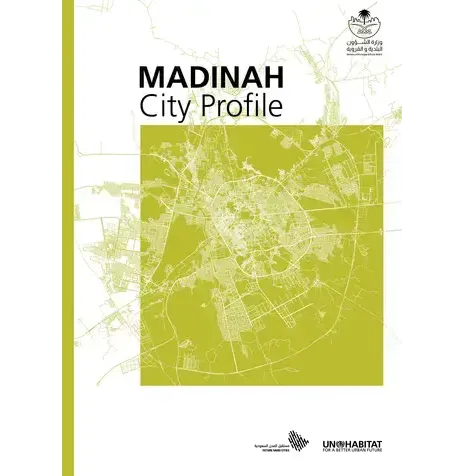
Madinah City Profile
UN-Habitat Publications
Information
The Future Saudi Cities Programme is a joint programme developed by the Ministry of Municipal and Rural Affairs in Saudi Arabia and UN-Habitat, implemented in close cooperation with the municipalities of 17 major Saudi cities, the cities have been selected based on their different population sizes, geographic distribution, and a range of criteria based on capacities and economic potential to create a more balanced regional development among the cities of Saudi Arabia. The chosen cities include Riyadh, Makkah, Jeddah, Taif, Madinah, Tabuk, Dammam, Qatif, Al-Ahsa, Abha, Najran, Jazan, Hael, Arar, AlBaha, Buraidah, and Skaka. one of FSCP outcomes is the city profiles.
The city-profile performs as a thinking tool that constitutes together an assessment tool and guidance for the current and future planning of the city, whilst defining a clear strategy for sustainable development. This tool is based on the UN-Habitat’s three-pronged approach considers spatial planning in relation to legal and institutional frameworks, in addition to financial mechanisms. In this way, success criteria for the sustainable implementation of a spatial plan should include flexible but enforceable rules and regulations, in addition to a financing strategy and projections.
The City Profile Methodology, that is applied to Tabuk, is contenting the following steps:
1- Evidence based input approach.
2- The City reviews.
3- The City Prosperity Index assessment report.
4- The GIS spatial analysis.